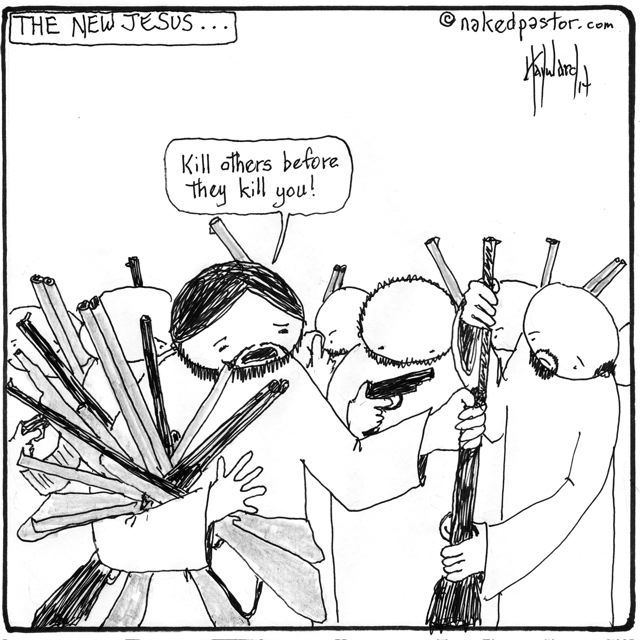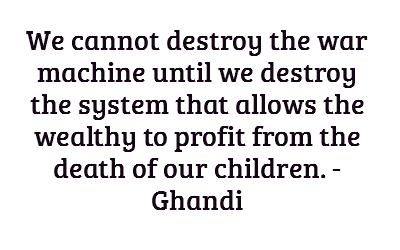
The security of a state is beholden to its nature, and how it interacts on a domestic and global front. If security is threatened, for example, from colonialism… or a foreign policy is enacted that affects territorial sovereignty… or on a domestic level, if civil unrest (racism or religious disputes) arises… The state will attempt to preserve its sovereignty, security, and for all intents and purposes, political perception in the international arena, in the hopes of quelling such disruptions, and in some instances, restore a balance of power.
The domestic condition of a state can be inextricably linked to the international circumstances of the time. The Gulf War in 1990 – 1991 arguably set a tone between Iraq and her allies, and western liberal democracies, not only globally but domestically. The war resulted in hundreds of thousands of innocent Iraqi civilian deaths. It also resulted in domestic upheaval, restructuring of the government, and foreign troops remaining in the country indefinitely, creating animosity within the Muslim state. With the hand-over of sovereignty from the U.N. in 2004, uncertainty still lingered.[1]
American foreign policy stemming from the Bush administration that had affected the sovereignty of countries such as Pakistan, Afghanistan, and Iraq, are some of the many examples in the geopolitical climate from 2001 until recently, where the Western mentality of ‘us versus them’ is most apparent. It is with this consideration that I explore the notion of the West’s ‘innocence’ and ‘victimization’ within this terrorist attack context. Has the West created its own harsh consequences, as a result of its actions in the Middle East?
Domestic manifestations of an ‘us versus them’ mentality that irrationally ignores the largely peaceful(until 2001 anyway) Muslim integration into Western and European-Western culture can also be attributed to the potential cause of increasing terrorist attacks that are predominantly aimed against the West. The “us and them” mentality where the West emphatically stipulates that our democracy, freedoms, liberty – our “civilized” nature – overshadows those moral values held by the followers of Islam can only create acrimony. [2] Considering the West as an ‘innocent victim’ of these terrorist attacks is a contentious issue at best.
 The current climate for the predominant Western power, namely the United States, when examining terrorism, tends to reveal an accusatory tone that hints at Western imperialism rather than the often-trumpeted Western media narrative of “self-determination” in the Middle East. According to Kegley, the United States has a history of portraying themselves geo-economically as a “Yankee imperialist”, inciting weaker states to design a foreign policy “geared to opposing imperialism.” [3] In other words, this persona carried across by the West has inevitably worn away at the existing relations between the Middle East and the West over time. This is particularly evident post the 9/11 attacks, where the decisive actions of the Bush administration gave birth to military campaigns that were waged against its ‘war on terror,’ and as a direct consequence, a war waged against Afghanistan, and surrounding nations in the region.[4]
The current climate for the predominant Western power, namely the United States, when examining terrorism, tends to reveal an accusatory tone that hints at Western imperialism rather than the often-trumpeted Western media narrative of “self-determination” in the Middle East. According to Kegley, the United States has a history of portraying themselves geo-economically as a “Yankee imperialist”, inciting weaker states to design a foreign policy “geared to opposing imperialism.” [3] In other words, this persona carried across by the West has inevitably worn away at the existing relations between the Middle East and the West over time. This is particularly evident post the 9/11 attacks, where the decisive actions of the Bush administration gave birth to military campaigns that were waged against its ‘war on terror,’ and as a direct consequence, a war waged against Afghanistan, and surrounding nations in the region.[4]
This consensus led by the Bush administration, to declare that “every nation, in every region, now has a decision to make. Either you are with us, or you are with the terrorists,” at the time had only helped to implement “an atmosphere of repression, fear and xenophobia” that has since led to a domestic crisis when attempting to integrate Muslim communities into western society.[5] As a result, containing terrorism becomes increasingly difficult, as does maintaining the appearance of the West’s ‘innocence’ in any future attacks against them.
[1] Lederer, M, Edith. ‘New U.N. Resolution Gives Iraq Sovereignty’, AP Online, 22 May, 2004.
[2] Cox, Patrick. ‘Can the Western powers be successful in the ‘war against international Islamist terrorism’?’ Conference Papers — Northeastern Political Science Association. 2009, p1., Database: Political Science Complete.
[3] Kegley, W, Charles, Jr. (11th eds.). ‘Foreign Policy Decision Making,’ World Politics: Trend and Transformation, Thomson Wadsworth, 2007, p55-91.
[4] Gerges, A, Fawaz. ‘The Obama approach to the Middle East: the end of America’s moment?,’ International Affairs, Blackwell Publishing Ltd, 2013, p299-323.
[5] Ozturk, Ahmet. ‘The War on Terror, or the War on Civil Liberties: The State, Society and the Civil Liberties Since 2001,’ Review of International Law & Politics. 2010, Vol. 6 Issue 22, 2010, pp. 105-132. 28p., Database: Political Science Complete








